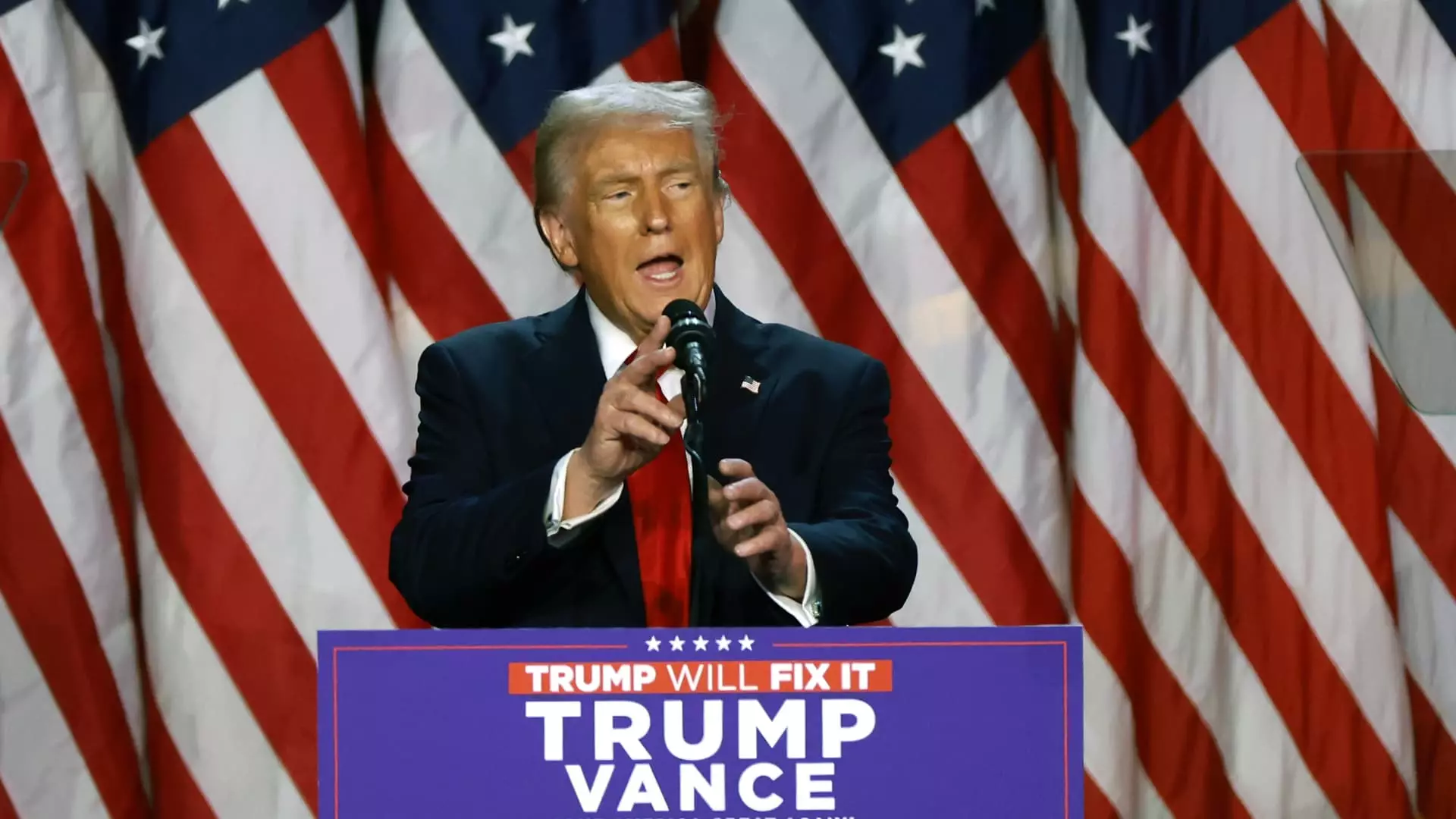The recent fluctuations in the stock market following the 2024 election of President Donald Trump and subsequent interest rate cuts by the Federal Reserve have generated considerable discussion around the state of the economy. While major stock indices—the Dow Jones Industrial Average, S&P 500, and Nasdaq—achieved unprecedented highs and recorded their strongest weekly performance in over a year, this surge contrasts sharply with the sentiments of many Americans regarding their personal finances. Financial experts have coined the term “vibecession” to describe this growing disconnect between the robust market performance and the pervasive feelings of uncertainty among the populace.
This discrepancy necessitates a thoughtful examination of individual financial strategies and decisions in the wake of significant political and economic shifts. Instead of reacting impulsively to the whims of the market or external political narratives, it is imperative for individuals to refocus their attention on what lies within their control—investing in sound financial practices and making informed choices that enhance personal and family finances.
In the midst of fluctuating economic conditions, adhering to a structured financial plan is essential. Certified financial planners emphasize the importance of maintaining a long-term perspective while being open to adjustments based on personal circumstances. Do not let political changes dictate your financial future. Instead, focus on strengthening your economic footing by implementing tailored financial strategies that support your goals.
As Rianka Dorsainvil, a certified financial planner, suggests, the way to navigate these uncertain times effectively is to focus on financial strategies that remain relevant irrespective of governmental policies on taxation, tariffs, or interest rates. Crafting a robust financial plan that prioritizes long-term growth while remaining adaptable to personal life changes can provide stability.
One major component of financial health is the establishment of an emergency fund. Financial advisors recommend setting aside three to six months’ worth of living expenses in a high-yield savings account. The rationale is straightforward—an emergency fund provides critical financial security and assurance amid unexpected events such as job loss or medical emergencies. With this safety net in place, individuals can tackle unforeseen challenges without derailing their core financial objectives.
Dorsainvil points out that prioritizing an emergency fund is a proactive measure that enables individuals to weather economic downturns with confidence. The peace of mind that comes from having a financial buffer allows you to make more reasoned decisions in times of uncertainty rather than resorting to reactive measures.
For individuals keen on improving their financial wellness, it’s crucial to explore tax-advantaged savings options. Many people overlook the benefits of retirement savings accounts such as traditional and Roth 401(k)s, as well as Roth IRAs. These accounts not only help you save for the future but can also significantly reduce your taxable income.
Lee Baker, another financial expert, recommends individuals take full advantage of matching contributions offered by employers. This is essentially free money that should not be ignored. Additionally, during open enrollment periods, thoroughly assess health insurance choices and explore flexible spending accounts (FSAs) and health savings accounts (HSAs). HSAs, in particular, are highlighted as exceptionally beneficial due to their triple tax advantage—contributions are made with pre-tax dollars, they grow tax-free, and withdrawals for eligible medical expenses incur no tax liabilities.
Credit card debt continues to be a significant issue for many Americans, and addressing it should be a priority for anyone looking to improve their financial situation. Financial experts recommend pausing any further credit card usage while collaborating with nonprofit credit counselors to devise a payment strategy that effectively eliminates outstanding debt. This careful management not only assists individuals in becoming more financially flexible but also strengthens their financial profiles for potential future economic shifts.
Furthermore, individuals should actively search for “missing money” or unclaimed assets, which can provide a surprising boost to their financial circumstances. The National Association of State Treasurers offers a resourceful website that enables individuals to locate assets from forgotten accounts—often requiring minimal effort to claim.
Despite short-term market fluctuations and the uncertainty they may invoke, it is imperative to ground financial decisions in solid, fundamental practices. Financial advisor Dorsainvil emphasizes the importance of focusing on the principles of effective money management that transcend political landscapes. By nurturing financial literacy and implementing sound strategies, individuals can cultivate resilience and confidence, allowing them to navigate any economic landscape—regardless of who occupies the White House. Clients seeking genuine financial improvement should focus on what remains controllable: their own financial health and literacy.

